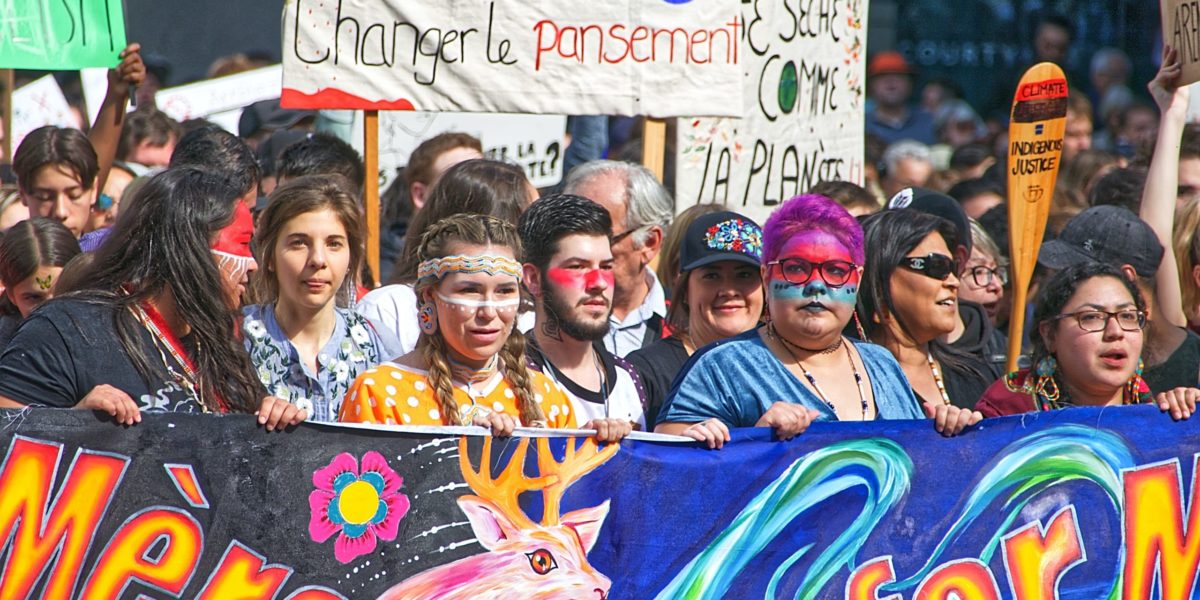Few measures better marry ecological and social justice than turning public land devoted to noisy, dangerous and polluting vehicles into social/co-op/rental housing. A prime candidate for this type of transformation is the René Lévesque Boulevard in Montréal.
On April 1, I bumped into about 500 students protesting behind a banner stating, “Justice Sociale, Climate Justice: même combat” (“Social Justice, Climate Justice: Same Struggle.”) As the march spilled on to both sides of René Lévesque I was reminded of its monstrous nature. At its widest the boulevard is 10 lanes and a few years ago a metal barrier was installed over multiple blocks across from Complexe Guy-Favreau. The presumed objective of this “highway-ization” of downtown is to stop pesky pedestrians from crossing halfway down the street.
In tacit recognition of its disastrous character, promoters of the Réseau express métropolitain (REM de l’Est light rail) effectively argue they can build an above ground eyesore on René Lévesque that will improve urbanity since four lanes will be turned into a pedestrian promenade and bike paths. While that may be correct, it’s hardly an argument for not building the line underground.
From Atwater to the Jacques Cartier Bridge, most of René-Lévesque is wide enough to build a row of lodgings with a narrow street on each side. In a direct cars-for-shelter exchange, thousands of social/co-op/rental units could be built while simultaneously improving urbanity.
While it may seem radical, this move would simply reverse an historical error. In the 1950s, hundreds of buildings and homes were demolished to widen the street. If housing were to replace the roadway, thousands—probably tens of thousands—could gain access to affordable housing in an area with easy access to employment and services by foot and bike as well as to the city’s two main Metro lines.
At the student march on Friday, protesters chanted against colonization. As part of taking public land away from polluting cars the city could devote some of the land to Indigenous run/focused cooperative or social housing. It would be a small Montréal contribution to the growing “land back” movement.
With free land in a centrally located area, co-op housing can be built with modest public support and government backed loans. To build significant amounts of social housing would require provincial and federal government funding. One (less than ideal) way to fund the housing could be to offer parts of René-Lévesque to condo companies in exchange for building social housing units elsewhere on the street. The city can also offer discounted land to companies that commit to building rental units. In the long-term, property taxes from thousands of units on René-Lévesque would generate far more income than parking fees.
Another benefit would be reducing greenhouse gas emissions. Private automobiles are the main source of GHGs in Montréal, with transport representing 40 per cent of the city’s GHGs and is also growing.
Just a few days ago, the UN Intergovernmental Panel on Climate Change released a new report that concluded we are “firmly on track toward an unlivable world.” The study appeals for immediate, large-scale shift away from fossil fuels.
Turning René-Lévesque into social/co-op/rental housing is the type of change that can dent runaway climate change while improving housing affordability and urbanity.
It is time for radical action.



